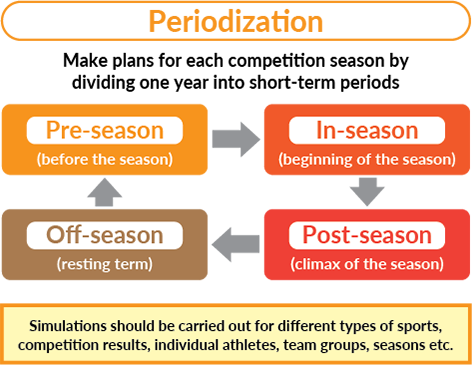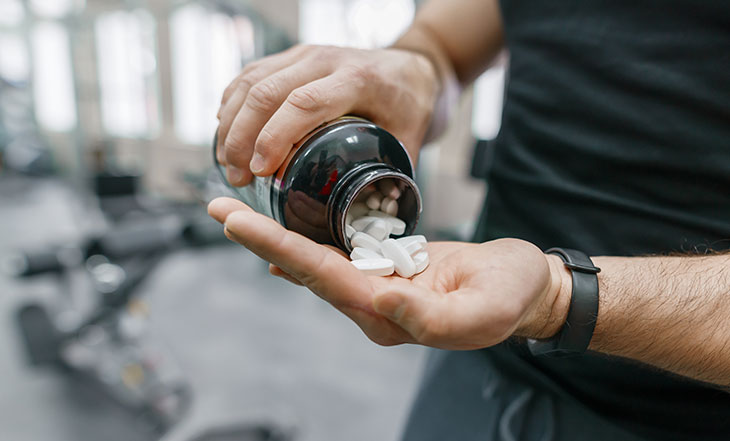What Does Sports Nutrition Do?
What Does Sports Nutrition Do?
Blog Article
All about Sports Nutrition
Table of ContentsHow Sports Nutrition can Save You Time, Stress, and Money.Unknown Facts About Sports NutritionGet This Report on Sports NutritionThe smart Trick of Sports Nutrition That Nobody is Talking About
Scientists with a history in sporting activities nourishment may also locate professional roles with companies that create dietary supplements and other products intended at athletes. A sporting activities nutritional expert in such a setting would likely investigate various active ingredients in a product, gather the latest clinical research study concerning them, and recommend business on which products to pick or avoid.
Sports nutrition is sometimes debatable and criticized. In its purest type, sports nutrition bargains with natural nutrients that can be gained or stemmed from foods and water. The surge in availability, popularity, and strength of various kinds of supplements, however, commonly obscures the distinction in between acceptable sporting activities nutrition and "doping," or making use of drugs recognized to enhance athletic performance.

Unknown Facts About Sports Nutrition
Some materials are restricted during competitive events, while others are always prohibited. Athletes who evaluate favorable for such materials might be banned from completing in an event. Sometimes, post-event tests discover proof of prior doping. If that takes place, the outcomes of the event may be altered to show this.
Specialists advise that athletes, specifically those on the professional degree, and their nutritional experts be extremely careful regarding their choices. Even some relatively safe supplements might have trace amounts of prohibited materials that can cause disqualification and other repercussions. USADA has encouraged that athletes continue to be regularly familiar with the selections they make, as they are in charge of whatever they consume, drink, or take into their bodies in differently.
Some sports, such as martial arts, categorize athletes by weight course. Professional athletes need to strictly adapt these classes; appearing at the official pre-event weigh-in also an ounce too light or also hefty could cause cancellation of the event or serious permissions by the event coordinator. Consequently, many professional athletes their explanation carry out severe and usually damaging programs of weight-cutting that typically entail deliberately dehydrating themselves to lower water weight.
Dehydration might result in numerous risks for the body. An absence of enough water is likely to decrease the quantity of blood flowing in the body. If blood flow subsides, the heart can not pump enough blood. Because blood transports needed oxygen and other products to the body's cells, the muscular tissues will certainly be deprived of oxygen.
See This Report about Sports Nutrition

In truth, an individual normally does not feel thirsty until dehydration has actually currently embeded in. For athletes, that implies that the body is currently weakened by lack of water before the signal of thirst appears. Because of that, athletes may consume alcohol water frequently, without awaiting thirst, to stop the onset of dehydration.
Alaia, Michael J. (2019, August 2). Sports Nourishment. OrthoInfo. College Chicago. 7 Professions in Nutrition., L. (2019 ). The Life of a Sports Nutritional investigate this site expert. Careers in Sporting activity - Sports Nutrition. (2022 ). Anti-doping 101. (2022 ). Nourishment Overview: Reach Your Top Performance Naturally. Bureau of Labor Statistics (2022, April 18). Dietitians and Nutritionists. Occupational Outlook Manual.
Learn the distinction in between creatine and whey protein. Regarding half of your body's supply of creatine (1 to 2 grams/day, regarding the dimension of 1 to 2 jellybeans) comes from your diet regimen, particularly protein-rich foods such as: Red meat (pork, veal and beef). Pet milk (like cow, goat and lamb milk).
The rest mosts likely to your heart, mind and various other tissues. Manufacturers additionally make creatine supplements. Some people take creatine supplements due to the fact that they exercise a lot or don't get sufficient creatine in their diet regimen. Creatine supplements exist as: Powders. Tablet computers. Capsules. Liquids. Power bars. Research studies show that it's secure for lots of people to take creatine supplements.
Top Guidelines Of Sports Nutrition
In addition, research studies recommend that creatine supplements might help mind feature in individuals 60 and older. This includes: Temporary memory. Talk to a healthcare service provider prior to taking creatine supplements, no matter of your level of physical fitness, age or wellness.
Expert sports companies, the International Olympic Board (IOC) and the National Collegiate Athletic Organization (NCAA) all enable professional athletes to use creatine supplements.Men and ladies report benefits to making use of creatine. Some studies note that ladies might not obtain as much stamina or muscular tissue mass as guys. The most usual creatine supplement is top article creatine monohydrate.
Report this page